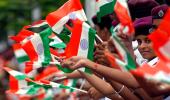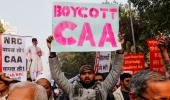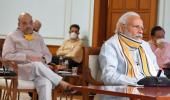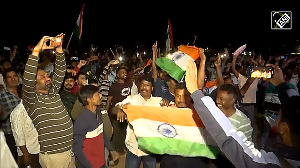Government officials at both the local and national levels in India were involved in "intimidating" critical media outlets through physical harassment and attacks, a United States report on human rights noted on Tuesday.

"Independent media were active and generally expressed a wide variety of views," said the India section of the 2021 Country Report on Human Rights Practices released by the State Department as mandated by the Congress.
"There were reports from journalists and NGOs that government officials at both the local and national levels were involved in intimidating critical media outlets through physical harassment and attacks, pressuring owners, targeting sponsors, encouraging frivolous lawsuits, and in some areas blocking communication services, such as mobile telephones and the internet, and constraining freedom of movement," it said.
NGOs in India alleged criminal prosecutions and investigations were used to intimidate journalists critical of the government, it said.
India in the past rejected similar reports.
The Indian government has asserted that India has well-established democratic practices and robust institutions to safeguard the rights of all.
The government has emphasised that the Indian Constitution provides for adequate safeguards under various statutes for ensuring the protection of human rights.
The annual State Department report on human rights said that there were significant human rights issues included credible reports of: unlawful and arbitrary killings, including extrajudicial killings by the government or its agents; torture and cases of cruel, inhuman, or degrading treatment or punishment by police and prison officials; and harsh and life-threatening prison conditions.
The State Department says that the Biden Administration has put human rights at the center of US domestic and foreign policy. The report paints a clear picture of where human rights and democracy are under threat.
It highlights where governments have unjustly jailed, tortured, or even killed political opponents, activists, human rights defenders, or journalists, including in Russia, China, North Korea, Nicaragua, and Syria.
The report documents abuses of peaceful protests demanding democracy and fundamental freedoms in countries such as Burma, Belarus, Cuba, Hong Kong, and Sudan.
In the India section of the report, the State Department says that there were also reports of arbitrary arrest and detention by government authorities; political prisoners or detainees and alleged that there were arbitrary or unlawful interference with privacy; restrictions on free expression and media, including violence, threats of violence, or unjustified arrests or prosecutions against journalists.
The State Department in its report alleges that there was use of criminal libel laws to prosecute social media speech; restrictions on internet freedom; overly restrictive laws on the organisation, and funding, or operations of non-governmental organisations and civil society organisations.
Refoulement of refugees; serious government corruption; government harassment of domestic and international human rights organisations; and lack of investigation of and accountability for gender-based violence are some of the other significant human rights violations in India in 2021.
According to the report, among other human rights violations in India were crimes involving violence and discrimination targeting members of minority groups based on religious affiliation, social status or sexual orientation or gender identity; and forced and compulsory labour, including child labour and bonded labour.
"Terrorists in Jammu and Kashmir, northeastern states, and Maoist terrorism-affected areas committed serious abuses, including killings and torture of armed forces personnel, police, government officials, and civilians, kidnapping, and recruitment and use of child soldiers,” it said.











 © 2025
© 2025